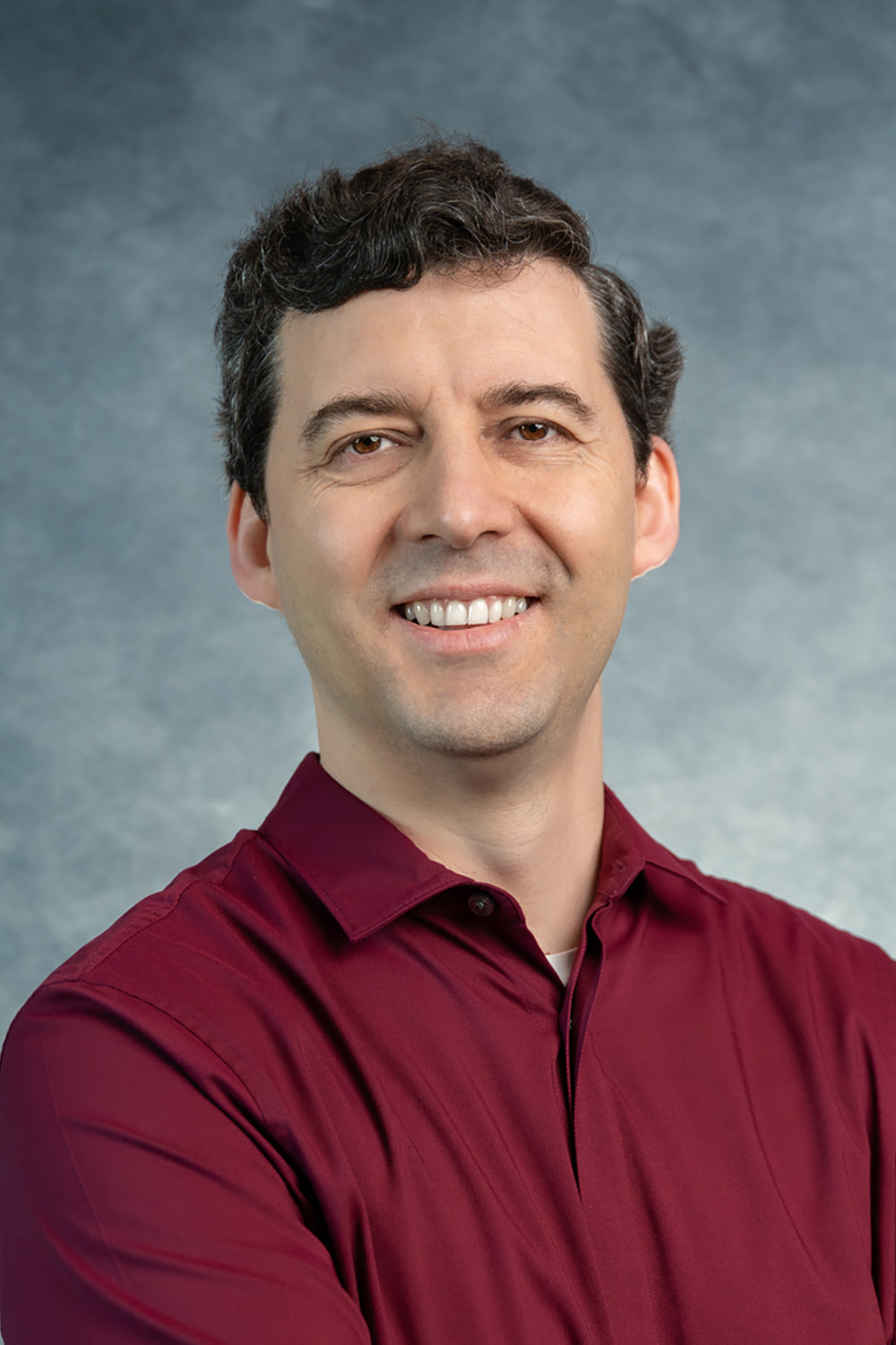Engineering Researcher, U.S. Historian Earn Recognition
By: Office of Media Relations | April 26, 2024

Dr. Carlos Busso, professor of electrical and computer engineering (ECE) in the Erik Jonsson School of Engineering and Computer Science at The University of Texas at Dallas, has been named a fellow of the International Speech Communication Association (ISCA) for his “contributions to speech and multimodal affective signal processing and their technology applications.”
The fellows program honors outstanding ISCA members who have made significant contributions to the science and technology of speech communication.
Busso began working on the area of affective computing with a focus on speech and facial analysis in 2003. At that time, it was uncommon to work on affective computing and the dependencies between speech and facial expressions. Affective computing aims to develop systems and devices that can recognize, interpret, process and simulate human emotional states.
“At that time, there were very few research groups working on computational models to understand, recognize and synthesize emotions,” Busso said. “It is rewarding to see how my laboratory’s contributions have helped this area to evolve over the years, which is now a very well-established area in machine-learning-based conferences and journals.”
The ISCA will honor Busso at its conference, Interspeech 2024, which will be held Sept. 1-5 in Kos Island, Greece.
“Being elevated to ISCA fellow for my contributions in this area gives evidence of the impact of my research vision and motivates us to continue bringing solutions to affective computing problems with high societal impact,” said Busso, who directs the Multimodal Signal Processing Lab.
“I am thankful for my students here at UT Dallas,” Busso said. “You will find that many of my technical articles are led by current and former students whom I have mentored. Working with them has been extremely rewarding.”
Dinesh Bhatia MS’87, PhD’90, professor and department head of ECE, said: “Professor Busso isn’t just a top researcher; he also is heavily engaged in teaching fundamental undergraduate courses. ECE students have the opportunity to learn from him and other true experts in the field.”
Historian Wins Pair of Research Fellowships

Dr. Whitney Nell Stewart, assistant professor of history in the Harry W. Bass Jr. School of Arts, Humanities, and Technology at The University of Texas at Dallas, has been awarded a pair of research fellowships to study at George Washington’s Mount Vernon and Thomas Jefferson’s Monticello.
She is among 23 George Washington Presidential Library fellows who will be conducting research that will foster a better understanding of the history of colonial America, the Revolutionary War era and early America. She will be in residence for three months at the Washington Library, which is not open to the public.
Stewart will be doing similar research at Monticello as a Batten and First Union Domestic Fellow. She will spend two months at the Robert H. Smith International Center for Jefferson Studies, where she will have access to Monticello’s staff and research holdings at the Jefferson Library.
“I’ll be reading through letters, diaries and agricultural journals of George Washington and Thomas Jefferson,” she said. “It’s a great opportunity.”
Stewart is working on an upcoming book that will explore the intertwined relationship of wine and slavery during the nation’s first century, and the centrality of this connection to labor, freedom, capitalism and American identity in the 19th century.
Her first book, This Is Our Home: Slavery and Struggle on Southern Plantations, examines how both enslaved and enslaving residents of plantations in the 19th-century U.S. South used their environment and material culture to make a home. The book won the 2024 Ramirez Family Award for Most Significant Scholarly Book from the Texas Institute of Letters (TIL), a nonprofit honor society that celebrates Texas literature and recognizes distinctive literary achievement. She will be honored at the TIL awards ceremony May 4 in The Woodlands, Texas.
Accolades is an occasional News Center feature that highlights recent accomplishments of The University of Texas at Dallas faculty, students and staff. To submit items for consideration, contact your school’s communications manager.
Media Contact:
Office of Media Relations, UT Dallas, 972-883-2155, newscenter@utdallas.edu, or the Office of Media Relations, UT Dallas, (972) 883-2155, newscenter@utdallas.edu.





